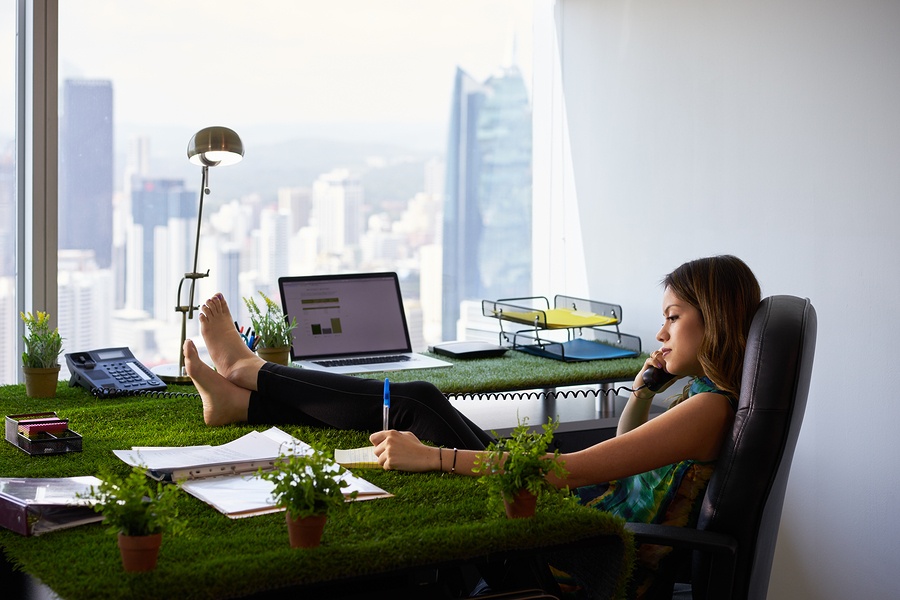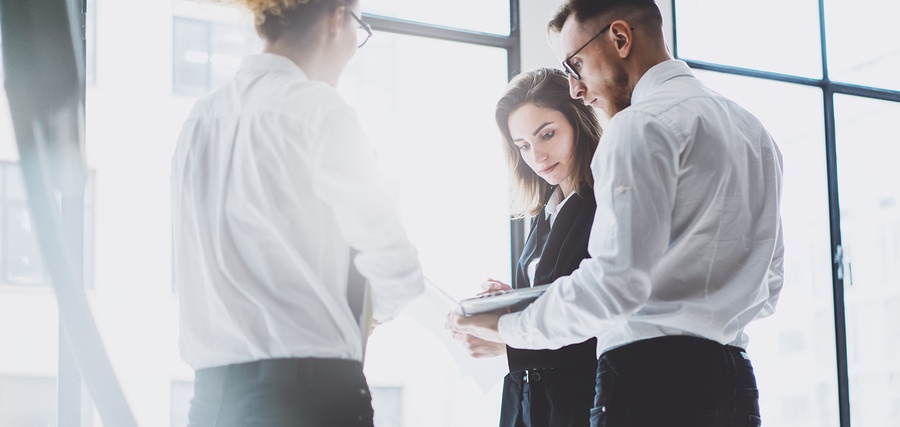With Easter on the way, my social media stream is a flood of eco-friendly Easter egg colouring tips and indulgent chocolate recipes. Ten years ago, sustainability and eco-friendly practices were side notes or just for big businesses. Nowadays, social media is awash with content catered to my tree-hugging and chocolate loving habits. This realisation got me thinking: if holidays are becoming eco-friendly then surely businesses have become eco-friendlier in the past decade. Right?
We can reduce our energy use by 80 percent with no reduction in our quality of life.
Paul Hawken, author of The Ecology of Commerce
Ten years ago, these were the most common suggestions to make your office eco-friendly:
- Invest in flat screen monitors.
- Turn off the power.
- Go paperless.
- Recycle.
- Have a business casual dress code. Not having to wear suits in hot summer months can help keep cooling costs down (and make for a happier workplace).
- Stop using screensavers.
- Eco-friendly travel.
So, how do these suggestions measure up in 2017?
- Flat screen monitors are now the norm. So that's one win!
- 49% of small business owners spend over £1000 a month on energy bills. Businesses waste energy lighting their empty offices. Earth Hour (a WWF initiative) drums up climate change awareness by asking businesses and individuals to shut off non-essential lighting for an hour, just once a year. If business were only using what they had to, this initiative would not be possible. So, this is something that we all need to work on.
- Paper waste is still an issue even with most workplace communications taking place online. Initiatives such as the Paperless NHS, have been put on hold because of funding issues. Yes, initial investment into systems and training is needed but organisations can see a positive ROI within a few years. Paper cannot be simply be 'done away with’ in all cases. For us at Convene, it is necessary to have business cards and some physical marketing materials. We recently made the switch to cards printed on recycled paper that can even be planted to grow wild flowers.
- In the UK and EU, it’s hard to ignore that recycling bin in the office kitchen. However, according to the British Assessment Bureau, bad waste practices cost UK businesses at least £15 billion a year. This means that we have a long way to go.
- People dress less formally. This is trend that millennials have pushed in the last decade. A casual dress code can also be seen as perk when it comes to hiring new talent and many offices operate on the ‘dress up when needed’ philosophy.
- Screensavers are no longer needed thanks to flat screen monitors.
- The widespread use and acceptance of video conference tools like Skype, has helped curb unnecessary travel, but many companies have cut costs by only funding economy class travel for their employees rather than cutting down on travel. Sometimes, sustainable practices and cost-effective solutions go hand in hand.
How can you do your part?
Start with a bit of self-reflection. This does not mean meditating on the colour green, but rather being conscious about how much you as an individual contribute to waste in an office. For example, you don't have to boil a full kettle of water for a single cup of tea.
Start doing something. Waiting for company led initiatives may take a longer than expected, because most eco-initiatives are pushed back for productivity initiatives. However, most of the time these are intertwined. For example, long can you really rely on printing every document in a digital age?
And remember, you don't have to be an 'eco-warrior' to save the planet. Small changes can lead to better practices and push the need for company wide change.









